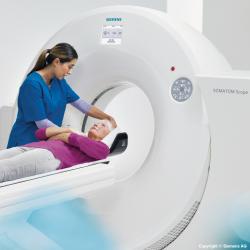 Across the world, the demand for healthcare services and expectations of quality of care and treatments are rising. Increased life expectancy is swelling the proportion of older people who in turn consume more healthcare services. Prosperity and dietary changes are increasing the incidence of medical conditions such as diabetes and youth obesity. And in the U.S.
Across the world, the demand for healthcare services and expectations of quality of care and treatments are rising. Increased life expectancy is swelling the proportion of older people who in turn consume more healthcare services. Prosperity and dietary changes are increasing the incidence of medical conditions such as diabetes and youth obesity. And in the U.S.
 Across the world, the demand for healthcare services and expectations of quality of care and treatments are rising. Increased life expectancy is swelling the proportion of older people who in turn consume more healthcare services. Prosperity and dietary changes are increasing the incidence of medical conditions such as diabetes and youth obesity. And in the U.S. in particular, legislative reform – the Affordable Care Act (ACA) – is heating up the competition among healthcare providers even as the overall effect of the act on hospital expenditures remains uncertain. The rise in the demand for healthcare is driving the need for up-to-date medical equipment and technology. While the equipment investment requirements take different forms in different regions of the world, there is one common thread: creating financially sustainable healthcare systems is imperative and methods of accessing private capital are vital.
Across the world, the demand for healthcare services and expectations of quality of care and treatments are rising. Increased life expectancy is swelling the proportion of older people who in turn consume more healthcare services. Prosperity and dietary changes are increasing the incidence of medical conditions such as diabetes and youth obesity. And in the U.S. in particular, legislative reform – the Affordable Care Act (ACA) – is heating up the competition among healthcare providers even as the overall effect of the act on hospital expenditures remains uncertain. The rise in the demand for healthcare is driving the need for up-to-date medical equipment and technology. While the equipment investment requirements take different forms in different regions of the world, there is one common thread: creating financially sustainable healthcare systems is imperative and methods of accessing private capital are vital.
With operations in 14 countries including Russia, India and China, the Siemens Financial Services (SFS) Commercial Finance unit has a unique global perspective on healthcare financing challenges and solutions. In the rapidly growing economies of India and China, for example, huge investment sums are needed to build a new healthcare infrastructure from the ground up. According to a 2013 SFS study of the financial scale of essential medical equipment acquisition globally, spending on new diagnostic imaging equipment in China is expected to rise by some 40% between 2012 and 2015, while in India that number stands at 48% over the same period.
The financing challenges are entirely different across Europe. In Western Europe, austerity and efficiency policies are severely restricting the available financing, with the result that a considerable proportion of medical equipment in use today is in need of urgent replacement. The same critical replacement burden is true even among Europe’s rapid growth neighbors such as Russia and Turkey because their established healthcare infrastructures suffer from decades of underinvestment and are striving to modernize medical equipment fleets to match the pace of their economic development.
Healthcare financial managers from China to Germany are realizing that necessary, up-to-date technology is financially unsustainable unless they make greater use of private-sector capital through efficient financing techniques like leasing. More and more, leasing is being used for an increasing proportion of medical equipment acquisition with the result that the medical equipment leasing market is outpacing growth in the market as a whole.
One of the early adopters of leasing in China is the Affiliated Hospital of Jining Medical College, located in Jining, a city in southwestern Shandong province. This provincial general hospital integrates clinical treatment, education, research, prevention, healthcare and rehabilitation. In 2005, the hospital was under capital pressure after the establishment of a 60,000m² new building. However, acquisition of the latest medical equipment remained an urgent priority. Through a leasing arrangement with SFS, the hospital was able to acquire up-to-date medical equipment including CT scanners, MRI and DSCT (dual source CT scanners). To date, the hospital has acquired professional medical equipment valued at RMB 282 million ($46.3 million).
In France, Biosynergie, a group of nine medical laboratories, employed hire purchase for the use of a fully automated immunoassay platform produced by Siemens Healthcare Diagnostics. The SFS financing package included implementation, insurance and maintenance. The 60-month payment scheme allowed Biosynergie to easily align costs with benefits, while the equipment’s increased testing capacity made it possible to keep up with peak workload without the need for additional staff.
And in Germany, Diagnosticum Ingolstadt was able to finance a magnetic resonance imaging system and other equipment with the aid of an SFS leasing solution. During the move and start-up periods, liquidity could be preserved as a result of a payment-free phase. The payment schedule was based on the principle of “pay as you earn” (a progressive installment payment structure). Moreover, payments could be adjusted to the customer’s earnings situation during the contract term.
In the U.S., the world’s largest medical equipment market, the ability to offer patients up-to-date medical technology is seen as a powerful competitive differentiator. In addition to ACA, a confluence of market forces makes it especially important for healthcare providers to attract more patients by offering the latest technology. ACA’s mandatory coverage, which will kick in fully in 2014, is bound to drive down reimbursement rates for treatments. Despite the improvement in the lending climate and the gradual pick up of the bond market, market activities – and access to capital for healthcare organizations – have not yet reached pre-2008 levels. And a growing number of mergers and acquisitions are putting even more competitive pressure on U.S. healthcare providers to win customers/patients and increase revenues.
One of the ways that U.S. hospitals can remain competitive in today’s healthcare market is by implementing electronic health records (EHRs). EHRs help increase the accuracy, speed and availability of information about a patient for caregivers all along the healthcare delivery chain. This in turn helps improve patient care and lower healthcare costs by eliminating redundant testing, avoiding harmful medication interactions and streamlining healthcare administrative tasks.
Hospitals that do not have EHRs are looking to implement them in order to comply with the Centers for Medicare and Medicaid Services EHR Incentive Program, otherwise known as “Meaningful Use.”
However, adopting new healthcare IT solutions can be problematic for small community hospitals that have limited IT resources. Arkansas Heart Hospital (AHH), an award-winning hospital dedicated to the prevention, diagnosis and treatment of cardiovascular disease, offers an example of such hospitals’ challenges — and solutions.
In 2012, AHH, which has 110 beds, 850 employees and a web of 30 clinics, had to implement new electronic health records technology and demonstrate meaningful use in order to qualify for federal incentive funds authorized by the American Recovery and Reinvestment Act. AHH tested and decided to adopt the Siemens Soarian® platform. One of the elements that helped seal the deal for the hospital’s CFO was Soarian®’s ability to query physicians and improve their documentation – thus allowing AHH’s financial managers to do a better job of adequately coding the account to reflect the services that were provided for the patient. It also allowed the financial team to get the appropriate reimbursement for what the hospital was doing for the patient.
In the summer of 2012, Siemens completed a ten-year, $10 million agreement with AHH for the acquisition and implementation of the Soarian® solution. The agreement included a tailored financing arrangement for $4.8 million brokered through SFS, which helped AHH structure the purchase and implement it without jeopardizing the hospital’s operating expenses. The hospital will use Soarian® to comply with the CMS EHR Incentive Program and to meet key quality measures for improved patient safety.
Working with Siemens, AHH completed the changeover to the hew healthcare IT in fewer than six months, a dramatic feat for any medical facility. In March 2013, the hospital achieved a “first” – 100% compliance with documentation on procedures done throughout the hospital using moderate sedation.
Medical equipment and technology acquisition challenges are distinct in the different regions of the world and there is no one-size-fits-all when it comes to financial solutions. However, as the examples above demonstrate, the financing needs of hospitals cannot be provided by the state alone. Private sector finance from specialist providers like SFS, that offer tailored equipment financing options, is key to ensuring that healthcare systems are not only able to compete but can thrive in today’s complex healthcare environment.
Image caption: Healthcare financial managers across the globe are realizing that necessary, up-to-date technology is financially unsustainable unless they make greater use of private-sector capital through efficient financing techniques like leasing. More and more, leasing is being used for an increasing proportion of medical equipment acquisition with the result that the medical equipment leasing market is outpacing growth in the market as a whole.







